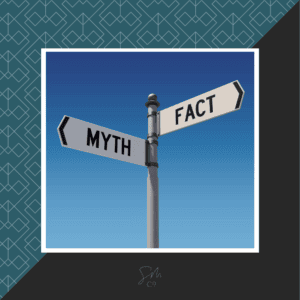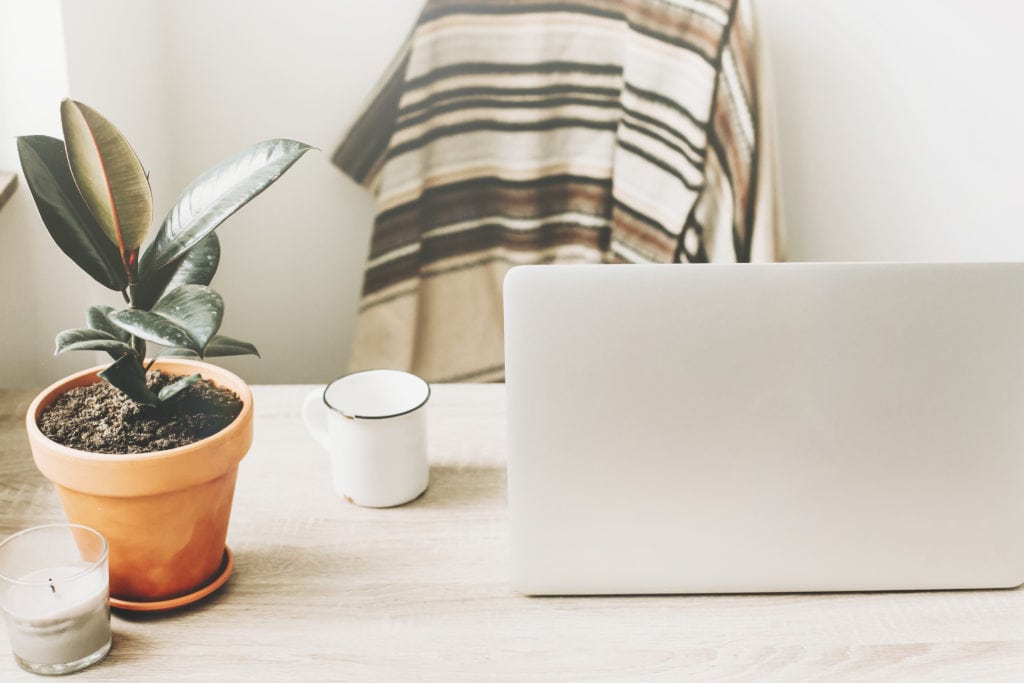Note from Sarah: This article was originally sent via my newsletter. Newsletter subscribers receive essay style pieces like this before anyone else. Click here to subscribe!
I did have a different newsletter topic planned for this week (explaining why we’ve shifted 90% of our business to productized services), but I wanted to press pause on that and talk a bit about the pandemic that’s we’re all dealing with, and what you may want to be thinking about as a business. In a previous career, I worked in public communications and was responsible for planning and handling communications around disasters and crisis. I also became FEMA certified in emergency/disaster response. Plus, I’ve worked from home for over a decade.
That’s all to say, I know a thing or two about this and wanted to share some knowledge and perspective.
Be transparent. If you’re a business that has a bricks and mortar presence, meaning that people can come to your workplace, be very very clear about your response to this situation. My friends and neighbors Mom & Pop Wine Shop did a great job of addressing this this week, and you can read that here. What’s notable is that they clearly told their customers what actions they’re taking and also about their ongoing protocols.
Don’t use a crisis as a marketing opportunity. Just don’t. I’ve already had my inbox filled with promotions mentioning COVID-19 and I am appalled. I know it may be tempting, especially since for bricks and mortar businesses, you can take a real hit, but that’s not the way to do it.
Do get creative about how you can do your work. If you’re not used to remote work, here are some of my favorite tools: Loom (creating walk-through type videos), Zoom (video conferencing), Google Docs (did you know you can do chat right on a document so you can collaborate in real-time?), Slack, and obviously good old fashioned phone calls.
Don’t feel pressured to do something you’re not comfortable with. If clients are mad you’re not available for in-person meetings, for example, that’s on them, not you. If you cancel an event and get blow-back, again, you’re doing the right thing. If a family member is in a high risk group and you choose to isolate yourself to protect them, you’re doing the right thing. One of the things I learned in my FEMA training was that bad things happen when folks cave to pressure like this.
If you’re not used to working from home, keep the following in mind:
- Stand up and move around. Seriously. In an office, you’re probably getting up and talking to coworkers, walking down the street to get coffee and hanging out in a breakroom. It’s very easy in a WFH to just forget about that and you can seriously injure yourself. If you have a fitbit or similar device, you can program it to nudge you.
- Understand that your schedule and workflow may be different at home versus in an office. This isn’t a failing on your part—you’ll figure it out.
- Don’t forget to eat and drink water! (Ask me how I know.)
- Keep colleagues in the loop. When you’re not used to remote work, it’s easy to inadvertently omit important communication and that can lead to hurt feelings and other problems. Make sure that before you make a decision or take action everyone who needs to know, does. This way, when you return to the office, everyone will still feel okay about everyone else!
WHAT ELSE SHOULD YOU THINK ABOUT?
Think about how you can support small, local businesses in particular. These folks get hit really hard even in small crisis-type events, and a larger scale one can kill a small business. Support your neighborhood businesses as you’re able.
Don’t forget about freelancers and service providers. Folks like piano tuners, photographers, event planners, caterers… they are all facing cancelations right now. If you have future needs, reaching out to these folks now can make a huge difference in their ability to stay in business.
Check on your neighbors. Our neighbors are older folks, putting them in a high risk category, and we text them regularly to make sure they’re okay and ask if they need anything.
Reach out to your friends and colleagues new to working from home. I’ve worked from a home office (our studio is a converted garage) for over a decade—staying home is no biggie for me. However, for folks who are used to going to a workplace every day, the transition to working from home can be extremely socially isolating and stressful. FaceTime and Zoom can be a lifeline for these folks.
If you’re a solo worker/freelancer, ask for and offer help. This is a biggie. Those of us who work for themselves should lean on our networks and offer help. Make backup plans with your network about project coverage and referrals. It’s better to do this now, rather than when you need it.
Take care of your own wellbeing. Working from home and limiting social contact can be very difficult. Take time for your hobbies, read a good book, and make sure you’re checking in with yourself.
Wishing you all good health and wellness during this difficult time.






 & Our Favorite Portland Coffee Shops
& Our Favorite Portland Coffee Shops
One Response
Hi Sarah,
I’m a freelance web designer and this is great advice. Thanks for addressing this issue.